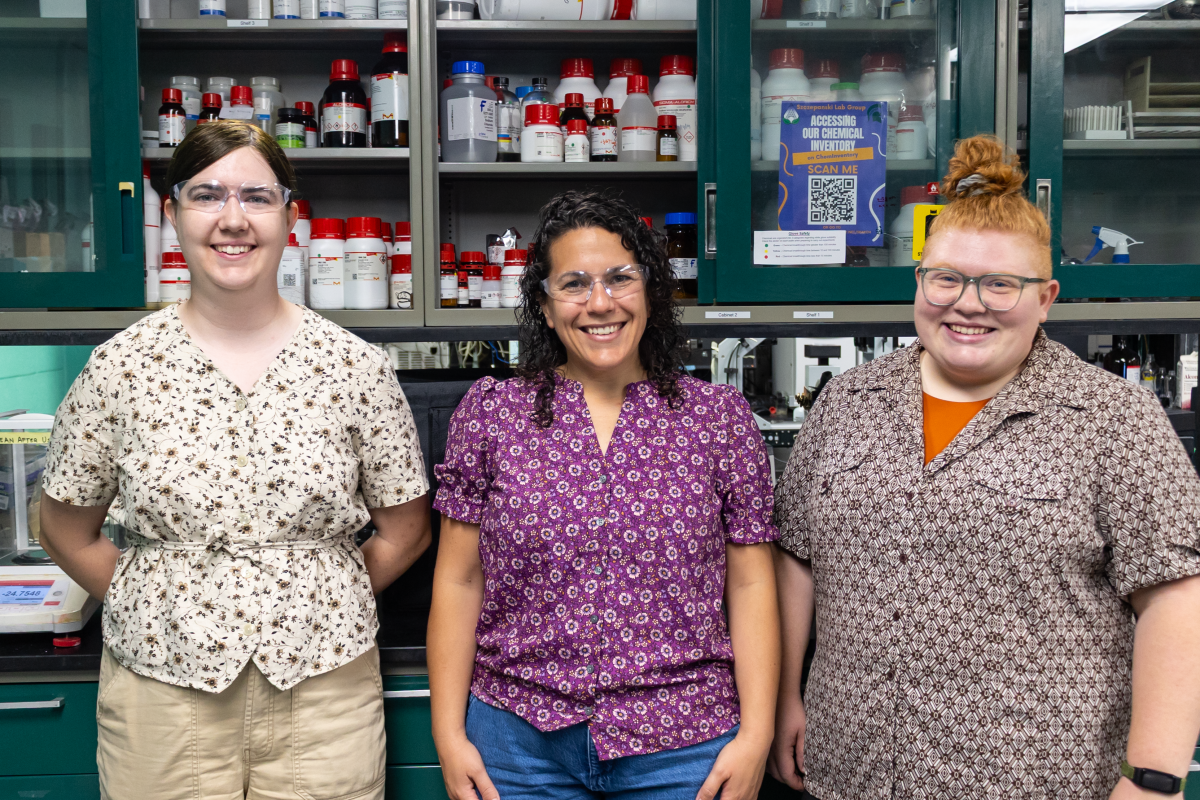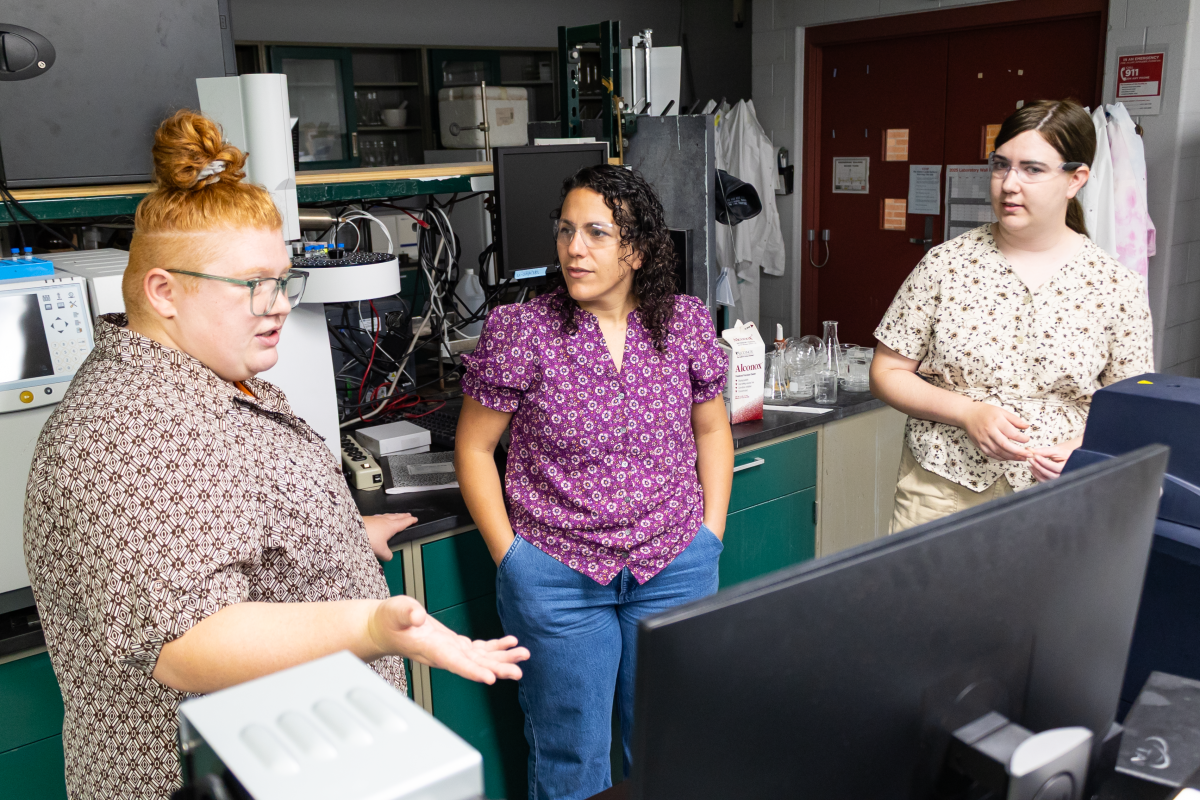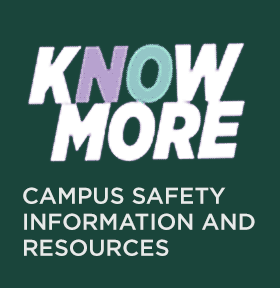When it comes to mentoring, there’s something special going on in the Michigan State University (MSU) Department of Chemical Engineering and Materials Science (ChEMS).
Three university-wide mentoring awards have been presented to members of the ChEMS community in the last two years.

Assistant Professor Caroline Szczepanski won the 2024-25 Outstanding Early Career Faculty Mentor Award from the MSU Graduate School.
Ph.D. students Allie VanZanten and Sabrina Curley were each named Undergraduate Research Supervisor of the Year at the University Undergraduate Research and Arts Forum for 2024 and 2025, respectively.
Szczepanski said collaborative mentoring is highly valued in the ChEMS culture. “In my team, we focus on expectations and communication strategies, and we’ve created a living document to serve as our guide,” she explained. “It’s nice to have the expectations laid out so clearly.”
“I, like many other of my colleagues, view our chair, Kris Chan, as an effective and supportive mentor,” she continued. “In fact, she is one of my departmental mentors. As a younger faculty member starting my career, I could see how valuable her support was as I was establishing my lab, and I mirror that with my own mentees.”
Chan, a University Distinguished Professor and the ChEMS chairperson, said members of the department foster a sense of belonging and community by connecting mentees with multiple mentors.
“We hope these exchanges contribute to the development of their technical abilities and communication skills, which are important for becoming well-rounded and adaptable leaders.”
Chan also credits Szczepanski’s efforts on campus and in national roles for the increase in awards and recognitions.
“Caroline is a passionate and empathetic mentor and epitomizes this building of a community of scholars. She is committed to the professional and personal growth of her students. She values, respects, and cares for her students, their independence, and their ideas.”
VanZanten and Curley are good examples of that. They are part of the Szczepanski Research Group that studies bioinspired and biomimetic polymer materials that replicate the self-healing and durability of natural materials.
“It’s been eight years now since I first became an undergraduate researcher myself,” VanZanten said, “but I still remember how challenging those early days were. It took me many years before I started to truly think of myself as a scientist. So, now my main goal when I’m mentoring undergraduate researchers is to instill confidence and curiosity early on.”
VanZanten thinks her empathy is her greatest strength. She was nominated for her 2024 award by a student she was mentoring. “I am so grateful that my mentoring was so influential to her.”
VanZanten is currently applying for research and development positions in product development, where she can use her strong technical knowledge in a business.
Curley approaches mentorship through modeling both research skills and personal skills.
“I try to be as candid as possible when I come across something I don't know the answer to and use these instances as opportunities to show methods of searching for such answers,” Curley explained.
“As someone who participated in undergraduate research myself and had graduate student and postdoc mentors, I have enjoyed being able to pay forward with the advice and lessons that I learned. It is exciting to be at a different stage in this cycle, going from mentee to mentor.”
Curley hopes to continue her research in nature-inspired polymers through a postdoctoral or national lab position.
Szczepanski said current mentoring strategies lean toward having more than one mentor.

“You want a mentoring team - a group of individuals who can contribute to your development. It allows you to examine the gaps that need to be filled in. No one person is going to be perfect and have all the experiences. Group mentoring provides a more complete mentorship.”
National organizations are shifting toward group mentoring, too, she noted. Professional groups like the American Association for Dental, Oral, and Craniofacial Research and the American Institute of Chemical Engineers have programs that Szczepanski has participated in where junior faculty are part of a development cohort or mentor pairing. “These programs are valuable. They provide the framework for mentor networks for early-career and up-and-coming professionals,” Szczepanski continued.
“If my mentoring is effective with the graduate students and theirs’s with undergraduates, people are happy and that’s good for everyone. I hope 10 years from now they can say it was really valuable for their professional development and growth,” she added.
Co-written by staff writer Patricia Mroczek and student writer McKenzie Schrah in the Marketing Communications office of the College of Engineering.
MSU College of Engineering Media and Public Relations page

